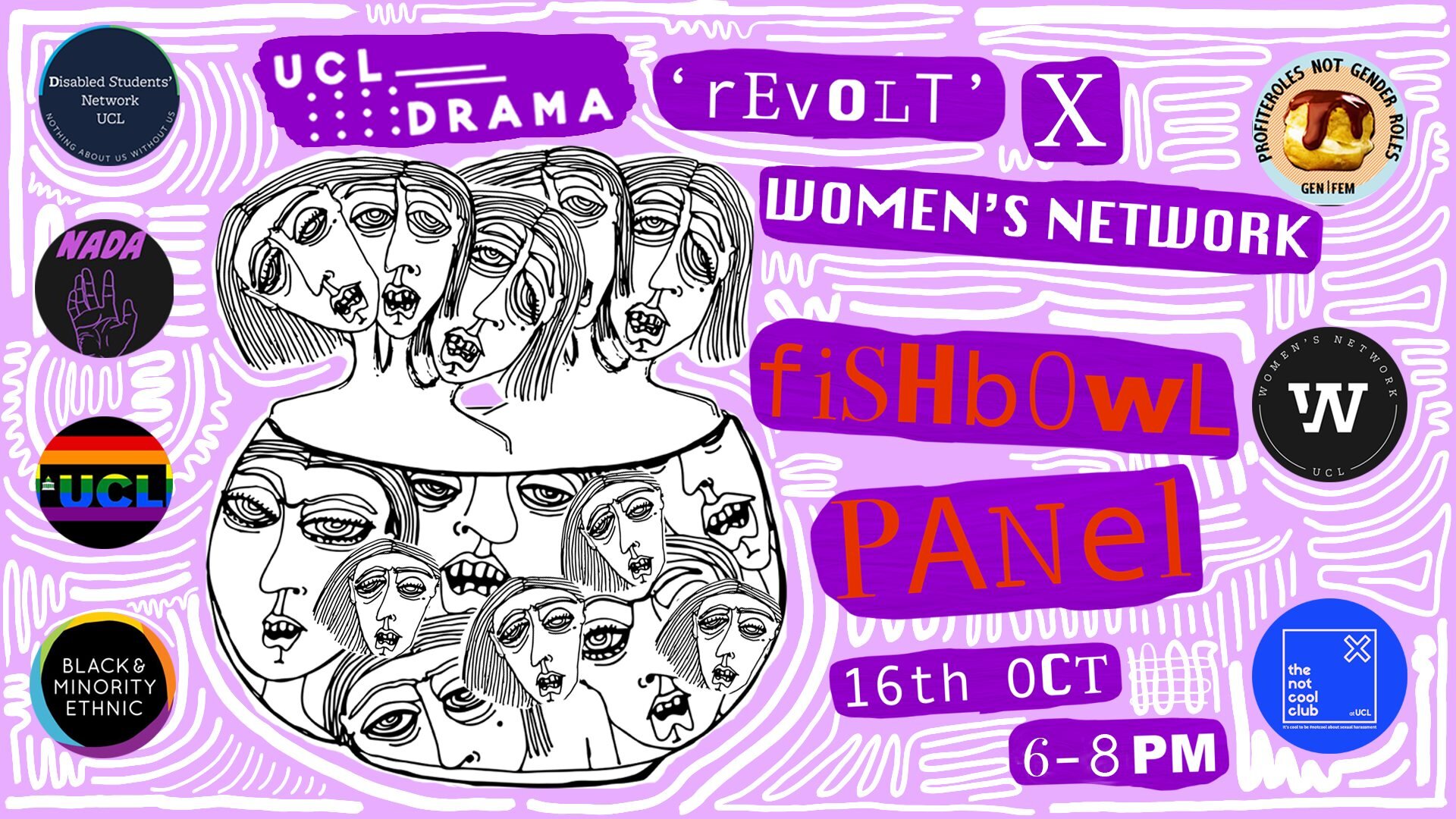UCL Drama and Women's Network host allyship panel
Vanessa Tsao attends the allyship fishbowl panel, a collaboration between UCL Drama and the SU Women’s Network.
On Wednesday 16th October, UCL Drama Society and the Students’ Union Women’s Network held a panel titled What does it mean to be an ally: Fishbowl Panel & Workshop.
The panel featured hosts Katy Dadacz from Drama Society and Nilisha Vashist, Students’ Union Women’s Officer, and speakers included Black and Minority Ethnic Students’ Officer Sandy Ogundele and Trans Officer Max Tscheltzoff.
The panel provided an interactive avenue for students to discuss what allyship meant in 2019, particularly as it occurs in the university social context. In exploring the definition allyship, many highlighted that allyship should be active. BME Students’ Officer Sandy said: “I don’t use the word ally. I use the word accomplice, because ally sounds too passive. You want someone who would be willing to shout by your side [when encountering discrimination]”.
Speakers stressed the importance of asking disabled people about their accessibility needs rather than making assumptions, since many disabilities can be invisible. By contrast, asking questions towards disabled and trans people could overwhelm or exhaust them, especially if it becomes too personal. “The better question is ‘How can I be a better ally to you?’” Trans Officer Max said.
Students not only brought questions and advice to the table, but also shared personal anecdotes to help others understand why it’s important to speak up even when others around you do not. “I felt awful inside after [not speaking up], and I didn’t know why. Then I realised and I had to change, to educate myself,” said Ian Piczenik, founder of the UCL Not Cool Club, which aims to end sexual harassment.
Attendee Suhanya de Saram felt that one of the takeaways from the discussion was learning how to not preach to people or be dismissive of ignorance, instead just “try to educate them in a sensitive manner”. Nilisha encouraged students to come to similar events, explaining that it’s a “good foundation for university students to learn how to be a better ally before going out into the workplace”.
The Drama Society will be hosting more workshops along similar themes related to its play “Revolt. She said. Revolt again.”

